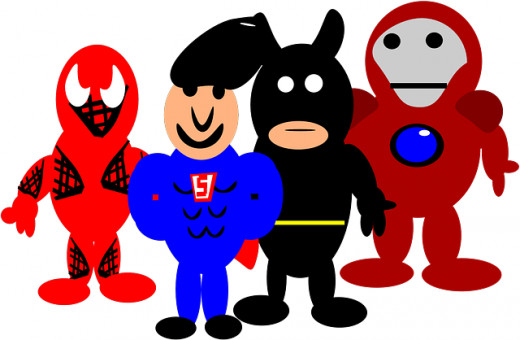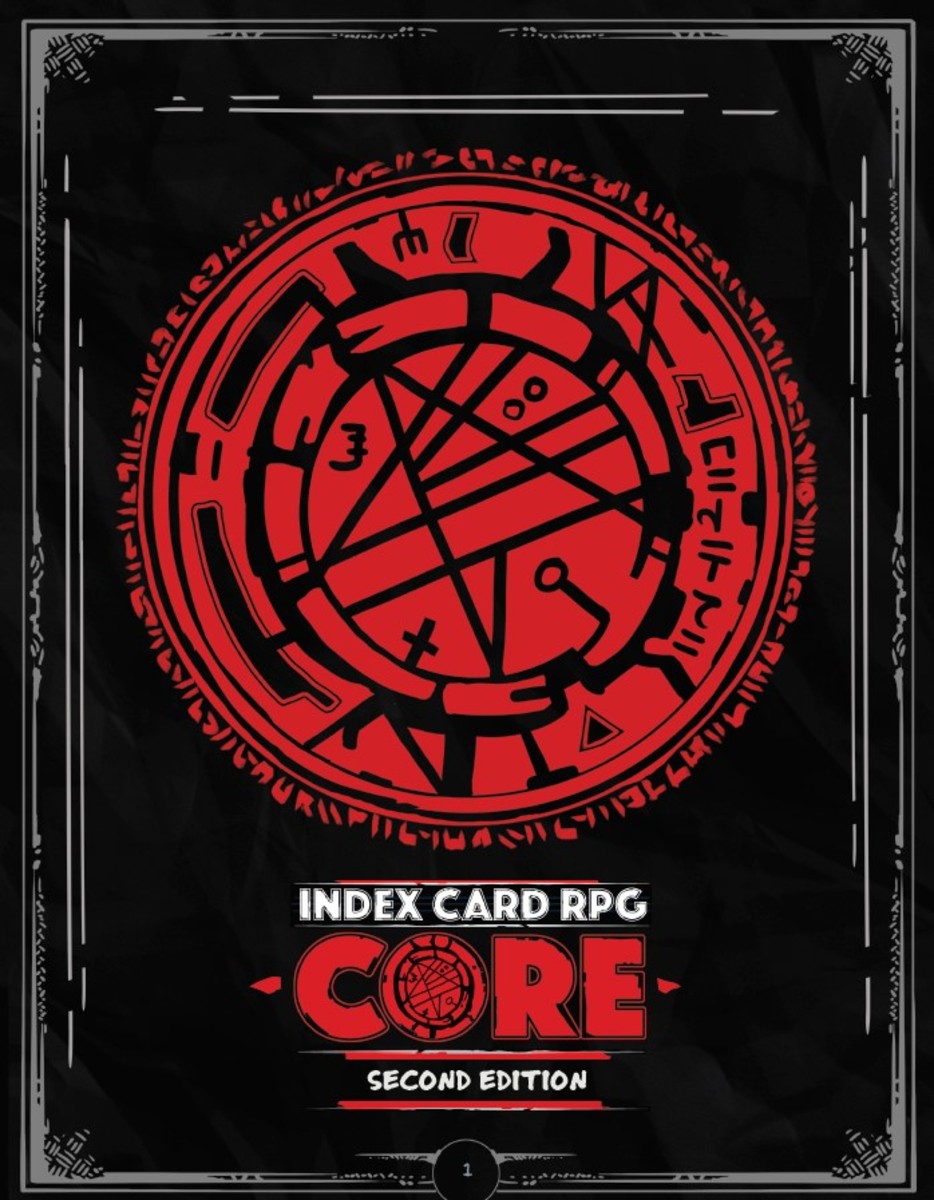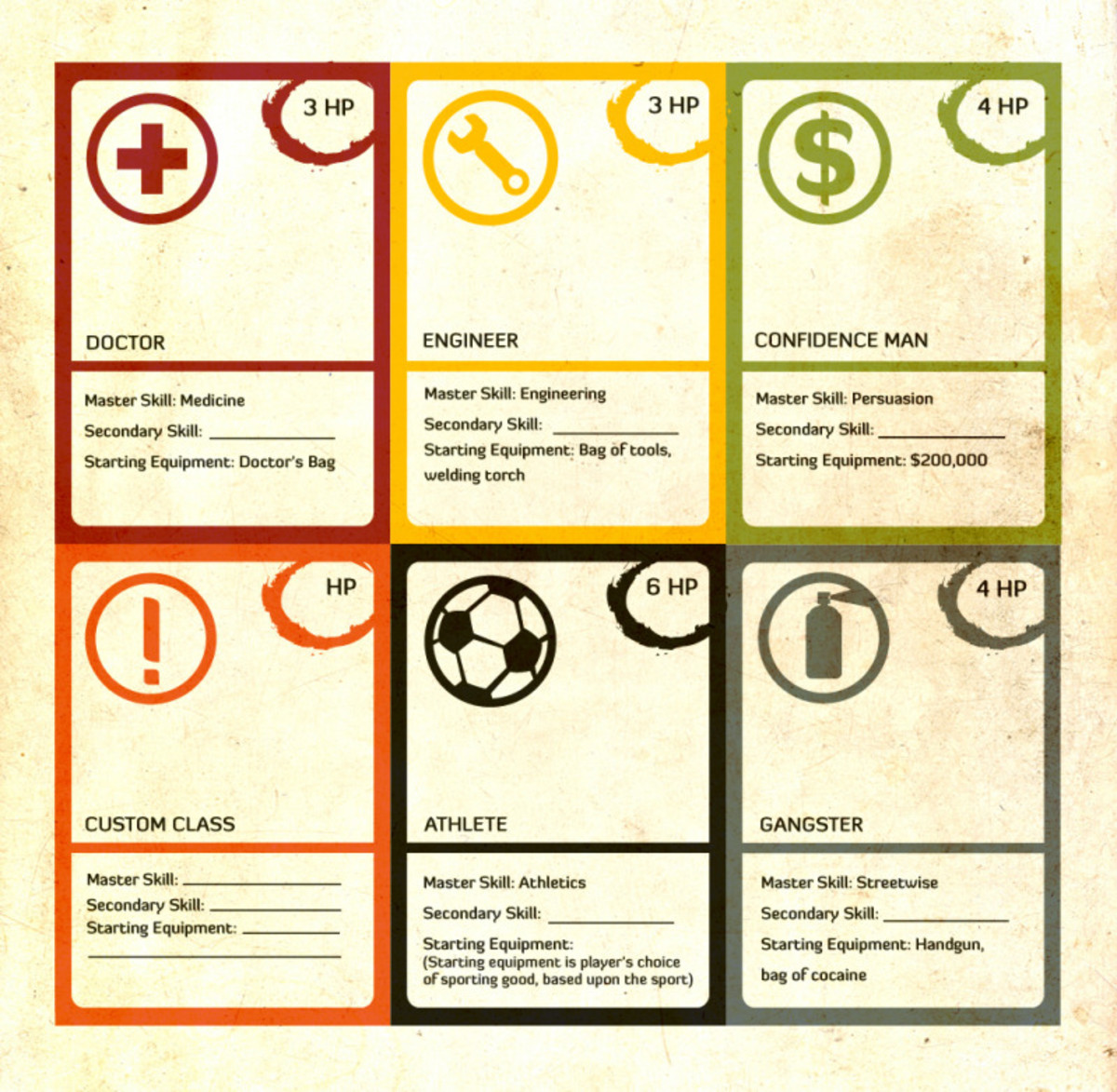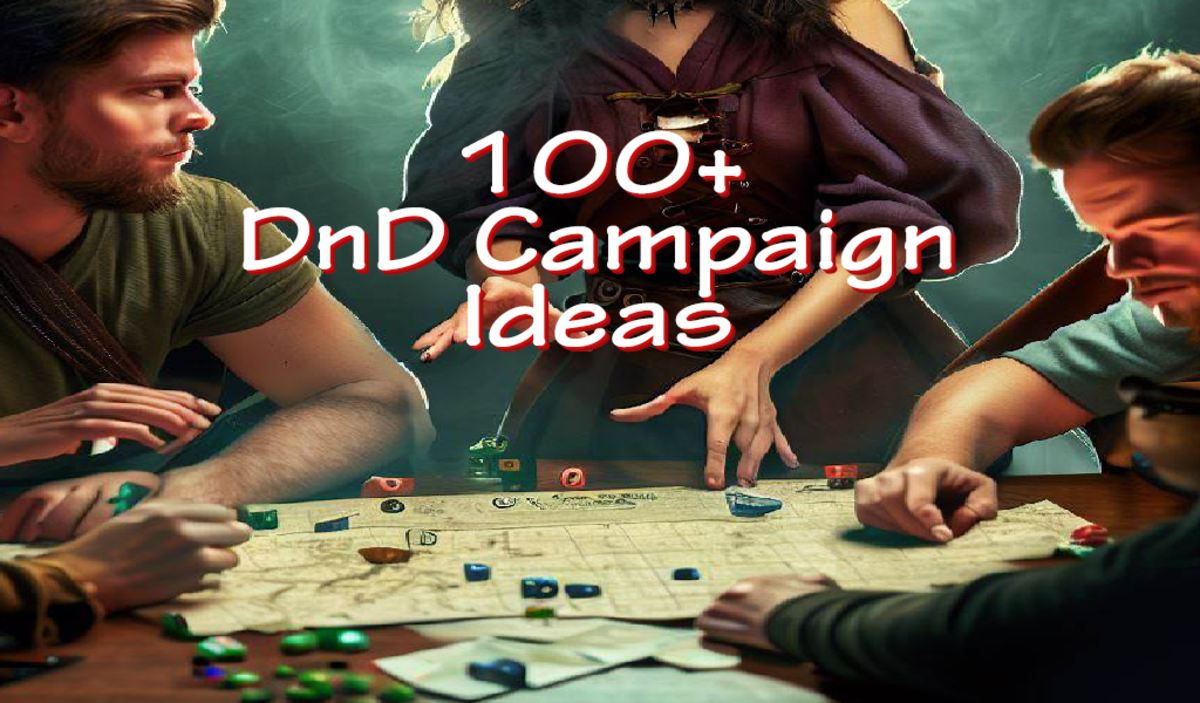How Not to Be a Game or Dungeon Master
Why Become a Game Master?
Being a game master carries a lot of power and a lot of responsibility in the context of playing the game. If you're going to run a game, then it'll work out to be a lot more fun for you if you think you'd enjoy doing some of the following
- Playing multiple different personalities in the context of non-player characters and monsters
- Developing or reading up on a game world including cities, nations, gods, continents, and environments.
- Designing and running encounters and dungeons - Presenting obstacles and challenges to player characters.
- Being the main storyteller and using vivid descriptions to inform and entertain your players.
- Being fair - A good DM does not intentionally try to kill their players but does pose challenges that actually require teamwork and thought to defeat.
- Likes to play a neutral / observatory / descriptive force in the campaign - DM Characters are usually a very bad idea - NPCs should be played neutrally without favoritism.
Don't #1: Give Preferential Treatment to Individual Players
In most game systems, players are expected to be kept on relatively equal footing. Even if players are generally working as a team, the rest of the group may end up getting bored or feeling useless if you give too many rewards, powerups, or pieces of magical equipment to one individual.
Favoritism is especially dangerous with girlfriends, boyfriends, and best friends. You especially want the people closest to you to have a blast playing the game, but it's important to remember that there are other people at the table. If you don't want people falling into the background or quitting out of boredom then it's important to make sure each player gets a good share of screentime and the in game treasure to keep things balanced.
Don't #2: Make the Game Unbearably Hard
As a game master, it's incredibly easy to make things so difficult that your players are guaranteed to lose their characters since you are the guy with all the cheat codes and the world editor. It is NOT you vs your players. If you DM like that, then you're going to have a bad time! Make the game more about developing your players characters and giving them the kind of story and combat experiences that makes them and their characters feel epic. Keep the game tough enough to keep them interested and challenged but do not make it winnable for them just so you can feel like you won by killing them all off.

Don't #3: Expect Too Much from New Players
Many of these game systems are hard for people who have never touched a pen and paper role-playing game to pick up. If you're trying to have someone delve into pathfinder for the first time, then expect them to need some help both with making characters and playing the game. I like to try to get people to have their characters at least started before a group meets but not everyone knows character creation inside and out. More than likely, mistakes will be made and you'll need to look over their sheets to have them make corrections. For people coming from video games it's not entirely obvious how the games work. The idea of being able to explore freely and do just about anything your character can within the context of a very open game is foreign to most people. Give them clues about what their characters might be able to do, how the system works, and help them to get into the role-playing aspect. A player that is lost on how to play will end up bored and it's a bit too much to expect them to understand the game first time in.
Don't #4: Forget to Plan Your Sessions a Little Bit
There might be one or two people out there in the world who can do improv perfectly for any given situation but it shows for everyone else when they fail to plan. Games like Pathfinder are rather complicated with a lot of intricacies and you will stumble over yourself if you try to do everything on the fly. You want to have consistency, interesting npcs, and a rich environment. It's easier to be able to work with some basic ideas that you had prepared ahead of time. I'm not saying that you need to play every detail, and in fact it's probably not a smart idea to do so because the story will change anyway, but you want to look like you're running a believable game. Plan for a cool experience and you'll find it easier in execution - Just don't get too attached to every idea you had in mind.
Don't #5: Railroad Your Players
Speaking of planning, try not to go overboard with it either. In pen and paper games, your players are more free to do as they please than any video game out there on the market. They can come up with all kinds of crazy developments and plot twists that will leave you unexpected as the game master. Instead of trying to put them back on the tracks that you set in stone, adapt to their play-style and actions. You're players will be annoyed if you tell them no too much on the cool things they want to try to do. They want to experiment, to explore, and to some degree create their own story from the base that you put in front of them. It's not about you and your story, its about the group and the cool story that the group individually contributes to for an awesome experience for everyone.

Don't #6: Forget to Reward Your Players Outside of Combat
Many players are trained by heart through video games to defeat enemies in battle to earn experience points and level up. Although that certainly is a core mechanic of most pen and paper role-playing games, they can also be so much more interesting and expansive then that. The whole reason that you, generally, want to play a pen and paper game is because of the imagination and freedom to affect the story when compared to a written-in-stone video game. If you forget to reward your players for doing interesting role-play solutions to problems like talking their way out of nasty situations, going above and beyond to help a NPC ally or employer, and stealthily moving past enemies rather than slaying them then they will be much more likely to just fight everything they come across. Some players, especially power gamers, might be OK with that but role-playing types may quickly get bored. To incentivise people to be creative, reward them for all solutions to problems and not simply ones that involve direct confrontation with bad guys.

Don't #7: Let One Bad Egg Spoil the Fun in Group Games
From time to time, you may come across a player who is adamant about being the strongest at all costs, tries to hide things from the party, has his own private agenda and cares little for the groups interest, or, even worse, to fight among the group or kill party members. In some systems, certain of these actions may be not be totally opposed because the understanding is that the players aren't really working together from the start but group cohesiveness is crucial in others. Having a player or character who doesn't work well with group is primer for drama to break out sooner or later. If you let it occur, then it's possible that animosity can even be taken outside the game. Try to make sure that everyone knows that they're there to have fun. If it's a group game, then everyone should be acting as a group at least to the expected extent. That doesn't mean that having individual choices in the game is bad, but lying to and backstabbing other players is a recipe for disaster.







